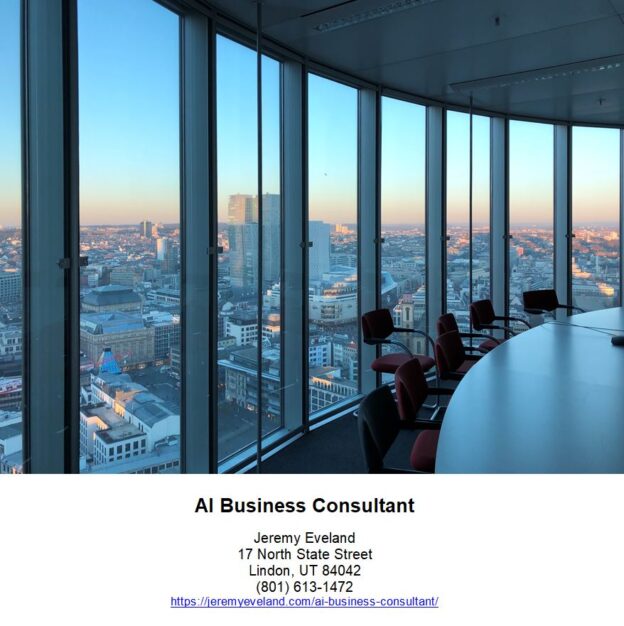Business Lawyer Smithfield Utah
Are you a business owner in Smithfield, Utah? Do you find yourself navigating complex legal issues on a regular basis? Look no further – a business lawyer can be your guiding light. With their expertise and knowledge, they can help protect your interests and ensure compliance with the law. From contract drafting to dispute resolution, a skilled business lawyer is an invaluable asset for any entrepreneur. Discover the benefits of having a trusted legal advisor by your side in Smithfield, Utah.
Key Takeaways
- Hiring a business lawyer in Smithfield, Utah is important to protect business owners from legal challenges and vulnerabilities.
- Business lawyers in Smithfield have a deep understanding of local laws and regulations and can provide necessary legal advice and representation.
- They offer a range of legal services tailored to business owners' needs, including contract drafting, business formation, employment law guidance, and intellectual property protection.
- When choosing a business lawyer in Smithfield, it is important to assess specific legal requirements, research reputation, consider compatibility and trust, and make an informed decision based on legal needs and lawyer qualities.
Importance of Hiring a Business Lawyer in Smithfield, Utah
If you're starting a business in Smithfield, Utah, you should seriously consider hiring a business lawyer. Business law can be complex and navigating the legal intricacies on your own can leave you vulnerable to potential legal challenges. A business lawyer in Smithfield, Utah can provide you with the necessary legal advice and representation to ensure that your business is set up for success.
A business lawyer is well-versed in the laws and regulations specific to Smithfield, Utah. They have a deep understanding of the local legal landscape and can guide you through the process of establishing your business entity, drafting contracts, and complying with all relevant laws. With their expertise, they can help protect your interests and minimize any potential risks.
Legal challenges are inevitable when running a business. Whether it's contract disputes, employment issues, or intellectual property concerns, having a trusted business lawyer by your side can make all the difference. They will not only provide sound legal advice but also represent you in negotiations or court proceedings if necessary.
By hiring a business lawyer in Smithfield, Utah, you gain access to an invaluable resource for your entrepreneurial journey. They offer various types of legal services tailored to meet your specific needs as a business owner. From drafting contracts and agreements to handling mergers and acquisitions, they have the expertise required to navigate through different aspects of business law.
Types of Legal Services Offered by Business Lawyers in Smithfield, Utah
When it comes to legal services, you can expect a business attorney in Smithfield, Utah to assist you with a wide range of issues such as contract drafting and negotiation, business formation, employment law matters, and intellectual property protection. A skilled business lawyer understands the complex legal landscape that businesses operate within and can provide guidance to help you navigate it successfully.
One of the primary types of legal services offered by a business lawyer in Smithfield, Utah is contract drafting and negotiation. Whether you need assistance with creating contracts for your clients or negotiating favorable terms with suppliers or partners, a business lawyer can ensure that your agreements are legally sound and protect your interests.
Additionally, a business lawyer can help with matters related to business formation. This includes advising on the appropriate legal structure for your company – whether it be a sole proprietorship, partnership, corporation, or LLC – and assisting with the necessary paperwork to establish your entity.
Employment law matters are another area where a business lawyer can be invaluable. They can assist with drafting employee contracts and policies that comply with state and federal laws while protecting your rights as an employer. In case of disputes or conflicts with employees, they can also provide guidance on how to handle these situations in accordance with applicable laws.
Lastly, intellectual property protection is crucial for many businesses. A skilled business attorney in Smithfield, Utah can help you register trademarks or copyrights for your brand assets and products/services. They can also advise on strategies to safeguard trade secrets or confidential information from being misappropriated by competitors.
Now that you understand the types of legal services provided by a business lawyer in Smithfield, Utah let's explore how to choose the right one for your specific needs…
How to Choose the Right Business Lawyer in Smithfield, Utah
The first step in choosing the right business attorney for your needs is to assess your specific legal requirements and priorities. Here are three important factors to consider when selecting a business lawyer in Smithfield, Utah:
-
Expertise: It is crucial to choose a business lawyer who has expertise in the areas of law that align with your specific needs. Whether you require assistance with contracts, intellectual property, or employment issues, finding a lawyer with relevant experience will ensure that you receive the best advice and representation.
-
Reputation: Researching the reputation of potential business lawyers is essential. Look for reviews and testimonials from previous clients to gain insight into their professionalism, communication skills, and success rate. A good reputation indicates that the lawyer is trustworthy and reliable.
-
Compatibility: Working closely with a business lawyer requires clear communication and trust. Consider whether you feel comfortable discussing sensitive matters with the lawyer during an initial consultation. It's important to find someone who understands your goals and values as this will contribute to a strong working relationship.
Choosing the right business lawyer in Smithfield, Utah can have a significant impact on the success of your business endeavors. By assessing your legal requirements, researching reputations, and considering compatibility factors, you can make an informed decision about which attorney is best suited for your needs.
Transition sentence: Now that you understand how to choose the right business lawyer for your needs in Smithfield, Utah let's explore some common legal issues faced by businesses in this area without writing another "step".
Common Legal Issues Faced by Businesses in Smithfield, Utah
To avoid potential legal troubles, it's important to understand common issues that businesses in Smithfield, Utah often encounter. As a business owner in Smithfield, Utah, you may face various legal challenges that can significantly impact your operations and bottom line. It is crucial to be aware of these common legal issues so that you can take proactive measures to protect your business and avoid unnecessary complications.
One common legal issue faced by businesses in Smithfield, Utah is contract disputes. Whether it's with suppliers, vendors, or clients, disagreements over contractual obligations can arise and lead to costly litigation if not resolved properly. Additionally, employment-related concerns such as wrongful termination claims or violations of labor laws are also prevalent issues that businesses must navigate.
Another area of concern for businesses in Smithfield, Utah is intellectual property infringement. Protecting your trademarks, copyrights, and patents is essential to safeguarding your brand identity and preventing others from profiting off your creations without permission.
Furthermore, regulatory compliance is an ongoing challenge for businesses operating in Smithfield, Utah. With ever-changing laws and regulations at the federal, state and local levels, it can be difficult to stay updated and ensure adherence to all applicable rules governing your industry.
Understanding the role of a business lawyer in Smithfield, Utah will help you navigate these common legal issues effectively. A skilled business lawyer can provide guidance on contracts and negotiations to protect your interests while minimizing the risk of disputes. They can also offer advice on intellectual property protection strategies and assist with ensuring regulatory compliance.
Understanding the Role of a Business Lawyer in Smithfield, Utah
Understanding the importance of hiring a skilled attorney can help businesses in Smithfield, Utah navigate legal challenges effectively. A business lawyer in Smithfield, Utah plays a crucial role in ensuring that your company operates within the boundaries of the law and is protected from potential legal risks. Here are four key aspects that highlight the significance of having a business lawyer by your side:
-
Legal Advice: A knowledgeable business lawyer can provide you with expert advice on various legal matters related to your company. They can guide you through complex legal procedures, such as drafting contracts, negotiating deals, and resolving disputes.
-
Compliance: Staying compliant with laws and regulations is essential for any business. A business lawyer can assist you in understanding and complying with local, state, and federal laws that govern your industry. They can also keep you updated on any changes or new regulations that may affect your operations.
-
Risk Management: Running a business involves inherent risks. A skilled attorney can identify potential legal risks specific to your industry and help develop strategies to mitigate them. This proactive approach can protect your company from costly lawsuits or regulatory penalties.
-
Conflict Resolution: Disputes are inevitable in the world of business. Whether it's a contractual disagreement or an employment issue, having a business lawyer on board ensures that conflicts are resolved efficiently and in accordance with relevant laws.
By understanding the vital role that a business lawyer plays in safeguarding your interests and guiding you through legal complexities, you are better equipped to make informed decisions for your company's success.
Transition into subsequent section about 'the benefits of having a business lawyer in Smithfield, Utah': With this understanding of their role established, let's now explore some of the tangible benefits that come from having a trusted business lawyer by your side in Smithfield, Utah
The Benefits of Having a Business Lawyer in Smithfield, Utah
With a skilled attorney by your side, you'll gain valuable insights on the advantages of having legal representation for your company in Smithfield, Utah. A business lawyer can provide expert guidance and support in navigating the complex legal landscape to help your business thrive. Here are some of the benefits you can expect when hiring a business lawyer in Smithfield:
| Benefits | Contextually Relevant Explanation |
|---|---|
| Legal Expertise | A business lawyer has extensive knowledge of laws and regulations specific to Smithfield, Utah. They can ensure that your company operates within the boundaries set by local, state, and federal laws. |
| Risk Management | By identifying potential legal risks early on, a business lawyer can help you implement strategies to mitigate those risks and protect your business interests. From drafting contracts to resolving disputes, they will work proactively to safeguard your company's reputation and assets. |
| Contract Drafting | Contracts form the foundation of any successful business relationship. A skilled business lawyer can assist with drafting clear and comprehensive contracts that protect your rights and minimize potential disputes. They will review agreements before you sign them, ensuring that all terms are favorable for your company. |
| Compliance Assistance | Staying compliant with various rules and regulations is crucial for any business's long-term success. A knowledgeable business lawyer will keep you informed about important compliance requirements specific to Smithfield, Utah, helping you avoid costly penalties or legal complications down the line. |
| Litigation Support | In unfortunate circumstances where litigation becomes necessary, having a trusted advocate by your side is invaluable. A skilled business lawyer will represent your interests in court proceedings or negotiations while working towards achieving the best possible outcome for your company. |
By having a competent business lawyer in Smithfield, Utah guiding you through these essential aspects of running a successful enterprise, you're setting yourself up for long-term success.
Now let's explore some vital legal considerations for starting a business in Smithfield, Utah.
Legal Considerations for Starting a Business in Smithfield, Utah
When starting a business in Smithfield, Utah, it's important to be aware of the legal considerations that may impact your operations. Consulting with a business lawyer can help ensure that you are knowledgeable and compliant with all relevant laws and regulations. Here are four key legal considerations to keep in mind:
-
Business Structure: Choosing the right legal structure for your business is crucial. A business lawyer can help you understand the pros and cons of different options, such as sole proprietorship, partnership, or limited liability company (LLC). They can guide you through the process of registering your business entity with the appropriate authorities.
-
Licensing and Permits: Depending on the nature of your business, you may need specific licenses or permits to operate legally in Smithfield, Utah. A business lawyer can assist you in identifying the necessary permits and guiding you through the application process.
-
Employment Law: Hiring employees comes with various legal obligations that must be met to protect both parties involved. From drafting employment contracts to understanding wage and hour laws, a business lawyer can provide valuable advice on navigating employment law issues.
-
Intellectual Property Protection: If your business involves unique products or services, safeguarding your intellectual property is essential. A business lawyer can help you navigate trademarks, copyrights, patents, and trade secrets to protect your valuable assets from infringement.
In conclusion, starting a business requires careful attention to legal considerations in Smithfield, Utah. Engaging the expertise of a knowledgeable business lawyer will ensure that you comply with all applicable laws while minimizing risks associated with operating a new venture. Don't hesitate to seek professional guidance when it comes to these vital aspects of starting and running a successful enterprise in Smithfield.
##
Frequently Asked Questions
What Are the Qualifications and Experience to Look for When Choosing a Business Lawyer in Smithfield, Utah?
When choosing a business lawyer in Smithfield, Utah, you should look for qualifications and experience that meet your needs. Make sure they have the expertise and track record necessary to handle your business legal matters effectively.
How Can a Business Lawyer Help With Contract Creation and Review?
A business lawyer can assist you with contract creation and review by ensuring that the terms and conditions are legally sound, protecting your interests, and minimizing potential disputes or liabilities.
What Steps Should a Business Owner Take if They Are Facing a Legal Dispute With a Client or Partner?
If facing a legal dispute with a client or partner, take immediate action to protect your business. Consult an experienced business lawyer who can guide you through the necessary steps and help resolve the issue efficiently.
Can a Business Lawyer Assist With Trademark and Copyright Registration and Protection?
Yes, a business lawyer can assist you with trademark and copyright registration and protection. They have the expertise to guide you through the process and ensure your intellectual property rights are safeguarded.
What Are the Potential Legal Risks and Liabilities That Businesses in Smithfield, Utah Should Be Aware Of?
You should be aware of potential legal risks and liabilities as a business in Smithfield, Utah. Don't overlook the fact that 60% of businesses face lawsuits each year. It's crucial to consult with a business lawyer to protect your interests.
Areas We Serve
We serve individuals and businesses in the following locations:
Salt Lake City Utah
West Valley City Utah
Provo Utah
West Jordan Utah
Orem Utah
Sandy Utah
Ogden Utah
St. George Utah
Layton Utah
South Jordan Utah
Lehi Utah
Millcreek Utah
Taylorsville Utah
Logan Utah
Murray Utah
Draper Utah
Bountiful Utah
Riverton Utah
Herriman Utah
Spanish Fork Utah
Roy Utah
Pleasant Grove Utah
Kearns Utah
Tooele Utah
Cottonwood Heights Utah
Midvale Utah
Springville Utah
Eagle Mountain Utah
Cedar City Utah
Kaysville Utah
Clearfield Utah
Holladay Utah
American Fork Utah
Syracuse Utah
Saratoga Springs Utah
Magna Utah
Washington Utah
South Salt Lake Utah
Farmington Utah
Clinton Utah
North Salt Lake Utah
Payson Utah
North Ogden Utah
Brigham City Utah
Highland Utah
Centerville Utah
Hurricane Utah
South Ogden Utah
Heber Utah
West Haven Utah
Bluffdale Utah
Santaquin Utah
Smithfield Utah
Woods Cross Utah
Grantsville Utah
Lindon Utah
North Logan Utah
West Point Utah
Vernal Utah
Alpine Utah
Cedar Hills Utah
Pleasant View Utah
Mapleton Utah
Stansbury Par Utah
Washington Terrace Utah
Riverdale Utah
Hooper Utah
Tremonton Utah
Ivins Utah
Park City Utah
Price Utah
Hyrum Utah
Summit Park Utah
Salem Utah
Richfield Utah
Santa Clara Utah
Providence Utah
South Weber Utah
Vineyard Utah
Ephraim Utah
Roosevelt Utah
Farr West Utah
Plain City Utah
Nibley Utah
Enoch Utah
Harrisville Utah
Snyderville Utah
Fruit Heights Utah
Nephi Utah
White City Utah
West Bountiful Utah
Sunset Utah
Moab Utah
Midway Utah
Perry Utah
Kanab Utah
Hyde Park Utah
Silver Summit Utah
La Verkin Utah
Morgan Utah
Smithfield Business Lawyer Consultation
When you need help from a Business Attorney near Smithfield Utah, call Jeremy D. Eveland, MBA, JD (801) 613-1472 for a consultation.
Jeremy Eveland
17 North State Street
Lindon UT 84042
(801) 613-1472
Related Posts
Business Lawyer South Salt Lake Utah
Legal Requirements for Utah Technology Startups
Business Lawyer Farmington Utah
Due Diligence For Buying A Utah Business
Understanding Utah’s Labor Laws
Business Lawyer North Salt Lake Utah
Product Liability Laws in Utah
Preventing Cybersecurity Breaches
Business Lawyer North Ogden Utah
Business Lawyer Brigham City Utah
Mastering Business Law: Key Essentials For Success
Business Lawyer Centerville Utah
Shareholder Agreements in Utah
Business Lawyer Hurricane Utah
Business Lawyer South Ogden Utah
Last Will and Testament Lawyer
Business Lawyer Heber City Utah
Business Lawyer Hurricane Utah
Business Lawyer West Haven Utah
Do I Need A License To Start A Business?
Business Lawyer Bluffdale Utah
Business Lawyer Santaquin Utah
Legal Implications of Cryptocurrency in Business Transactions










